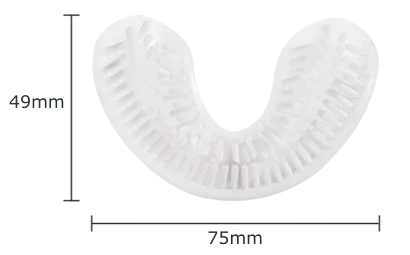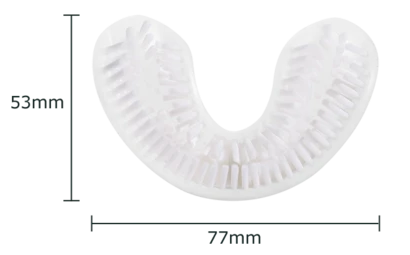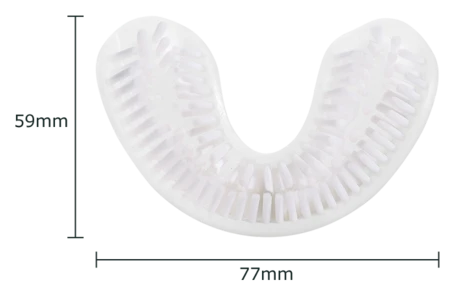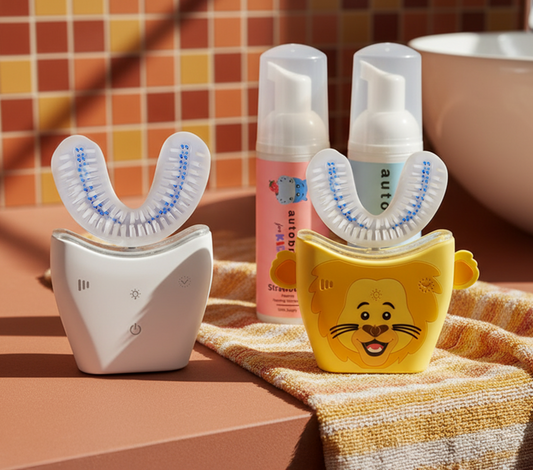
Why Do My Teeth Hurt? Understanding and Alleviating Tooth Pain
Tooth pain can be a minor annoyance or a major disruption, but in either case, it prompts the question: why do my teeth hurt? In this blog, we dive into the common causes of tooth pain, how toothache affects children, and how you can alleviate tooth pain at home.
Understanding Tooth Pain: Why Do My Teeth Hurt?
Tooth pain, also known as a toothache, is usually a result of inflammation in the central part of the tooth called the dental pulp. This soft area within the tooth contains nerves and blood vessels that can be sensitive to irritation. Here are the main culprits:
- Dental Decay: This is the most common cause of tooth pain. When bacteria in your mouth produce acids that erode your tooth enamel, it can result in cavities that expose the sensitive inner layers of your tooth.
- Gum Disease: Inflamed gums can lead to pain that feels like it’s coming from the teeth. Over time, untreated gum disease can even affect the bones that support your teeth.
- Tooth Abscess: This is an infection at the root of a tooth or between the tooth and the gum. It's a serious condition that can cause severe, persistent, throbbing pain.
- Impacted Teeth: This typically happens with wisdom teeth, which often don't have enough space to emerge or grow naturally.
- Cracked Teeth: A cracked or chipped tooth can cause pain that comes and goes. You might feel it when you bite down or eat something hot or cold.
Toothaches in Children
Children, too, can experience toothaches, which often stem from the same issues adults face. Cavities are particularly common, given children's penchant for sugary foods and their developing brushing habits. Also, children who are teething may experience discomfort.
How Do You Make Your Tooth Pain Go Away?
It's crucial to consult with a dentist if you have tooth pain, especially if it's severe or lasts for more than a couple of days. However, there are steps you can take to alleviate tooth pain at home:
- Over-the-Counter Pain Relievers: Non-prescription medication can help manage pain. For children, ensure the medication is child-friendly and used according to the package instructions.
- Saltwater Rinse: A natural disinfectant, a warm saltwater rinse can help loosen food particles and debris stuck in your teeth, reduce inflammation, and heal oral wounds that may be causing discomfort.
- Cold Compress: Applying a cold pack or ice wrapped in a thin cloth to the affected area can help constrict the blood vessels, reducing pain.
- Topical Numbing Gels: These gels, available over-the-counter, can provide temporary relief.

Remember, these are temporary measures and persistent tooth pain always warrants a visit to your dentist.
The Role of Good Oral Hygiene in Preventing Tooth Pain
Prevention is the best way to deal with tooth pain. Maintaining good oral hygiene by brushing and flossing daily can significantly reduce your risk of cavities, gum disease, and other dental issues that lead to tooth pain.
Using an advanced toothbrush like AutoBrush can help keep your teeth clean and prevent tooth pain. AutoBrush u-shaped toothbrush cleans all surfaces of your teeth simultaneously in just 30 seconds, helping to prevent plaque buildup, cavities, and gum disease. By ensuring that your teeth are thoroughly cleaned every time, you can significantly reduce your risk of tooth pain.
In addition to brushing, remember to floss daily. Flossing removes food particles and plaque from between your teeth and under the gum line, areas that your toothbrush can't reach. Ignoring this step in your oral care routine can lead to cavities and gum disease, both of which can result in tooth pain.
The Importance of Regular Dental Check-Ups
Even with impeccable oral hygiene at home, regular dental check-ups are crucial. Your dentist can detect early signs of oral health issues before they turn into painful problems. Professional cleanings can also remove hardened plaque (tartar) that you can't get rid of with regular brushing and flossing.
Dental check-ups are especially important for children. Your child's dentist can provide additional preventive measures like fluoride treatments and dental sealants to protect against cavities and tooth pain. Regular visits to the dentist also help children become familiar with the dental environment, reducing anxiety and establishing positive oral health habits from a young age.
A Balanced Diet for Tooth Health
A healthy, balanced diet also plays a vital role in preventing tooth pain. Limit sugary foods and drinks that contribute to tooth decay. Instead, opt for a diet rich in fruits, vegetables, lean proteins, and dairy. Foods high in calcium, like milk and cheese, can help to strengthen your teeth, while fruits and vegetables stimulate the production of saliva, which helps to wash away harmful acids and food particles.
When to Seek Professional Help
While the tips above can help manage minor tooth pain or discomfort, it's important to note that persistent or severe tooth pain requires professional attention. If your toothache lasts longer than a couple of days, if it's accompanied by fever, earache, or pain upon opening your mouth wide, seek immediate dental care. Such symptoms can indicate a serious underlying condition that needs prompt treatment.
Conclusion
"Toothache" or "tooth pain" is a common complaint among both adults and children, with causes ranging from cavities and gum disease to an abscess or impacted tooth. While at-home remedies can provide temporary relief, good oral hygiene practices are key to preventing tooth pain in the first place. An advanced toothbrush like AutoBrush can be a valuable tool in maintaining oral hygiene and preventing dental problems.
















